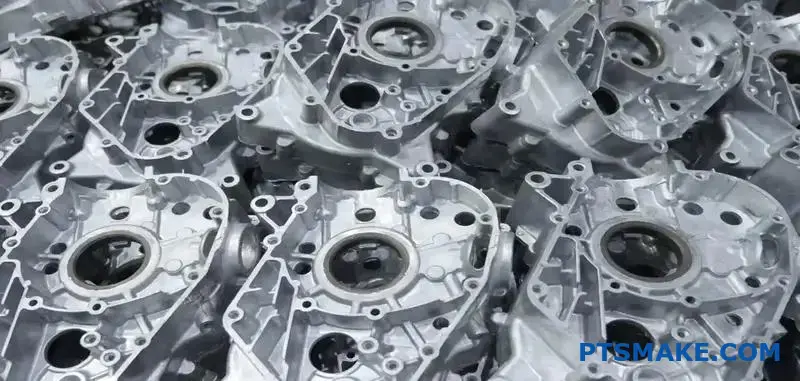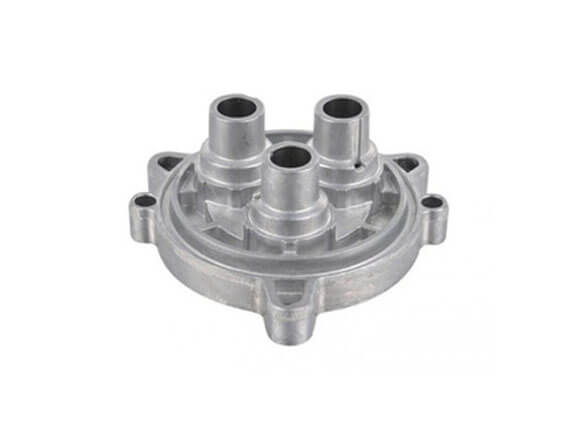Discover the Benefits of Aluminum Casting in Modern Manufacturing
Aluminum casting has actually arised as a critical procedure in modern-day production. Its light-weight yet durable nature offers significant advantages for various industries. The ability to attain complex designs and maintain tight tolerances contributes to its charm. aluminum casting. Additionally, the cost-effectiveness and environmental advantages make it a sustainable choice. As suppliers seek cutting-edge solutions, the role of aluminum casting proceeds to develop. What certain applications and advantages wait for exploration in this vibrant area?
Strong yet light-weight: The Advantages of Aluminum
Although lots of products are made use of in production, aluminum stands apart as a result of its exceptional combination of lightweight residential properties and phenomenal stamina. This distinct quality makes aluminum an excellent choice for numerous applications, specifically in industries such as automobile, aerospace, and building and construction. Its low density permits less complicated handling and transportation, adding to reduced power intake throughout manufacturing and assembly processes.
Additionally, aluminum's strength-to-weight proportion is outstanding, allowing suppliers to develop resilient elements without including unneeded mass. This characteristic is particularly beneficial in sectors where weight decrease can lead to boosted gas effectiveness and overall performance. Furthermore, aluminum's resistance to deterioration boosts the long life of products, better strengthening its charm in contemporary manufacturing.
Eventually, the lightweight yet solid nature of aluminum placements it as a recommended material, promoting technology and efficiency throughout several sectors. Suppliers significantly identify that these benefits can lead to considerable developments in layout and performance.
Precision and Complexity in Design
As makers accept the capabilities of aluminum casting, they uncover new opportunities for precision and complexity in design. This manufacturing process allows for the creation of complex forms and detailed features that standard approaches often battle to attain. The fluidness of liquified aluminum allows it to fill up intricate mold and mildews, causing components with tight resistances and great surface area finishes.
This precision is particularly helpful in industries such as aerospace and automotive, where precise requirements are crucial for performance and security. Aluminum casting likewise suits cutting-edge styles that enhance functionality without compromising architectural stability.

Cost-Effectiveness and Performance
Cost-effectiveness and effectiveness are paramount considerations for makers checking out aluminum casting as a manufacturing method. Aluminum casting deals considerable price benefits due to its reduced material costs contrasted to other metals (Precision aluminum casting). The light-weight nature of aluminum minimizes delivery and handling expenditures, and its outstanding thermal conductivity permits quicker cooling times throughout the casting process, enhancing general manufacturing rate
In addition, aluminum's flexibility enables makers to produce complicated shapes and styles, lessening the requirement for extra machining or setting up. This streamlining of manufacturing not only reduces labor expenses yet additionally reduces lead times, allowing companies to react quickly to market demands.
Additionally, the longevity and deterioration resistance of aluminum castings add to longer product lifespans, decreasing substitute expenses over time. As an outcome, suppliers can achieve a balance of top quality outcome and minimized functional expenditures, making aluminum casting a significantly appealing option in modern-day manufacturing.
Ecological Sustainability of Aluminum Casting
Aluminum casting stands apart as an ecologically lasting production option, specifically because of its recyclability and lowered environmental impact. The process enables the efficient use aluminum, a product that can be recycled indefinitely without losing its residential or commercial properties. This particular significantly reduces the need for virgin aluminum, therefore minimizing and preserving all-natural sources power intake related to removal and handling.

Applications Throughout Industries: From Automotive to Aerospace
While diverse markets remain to look for innovative materials for production, aluminum casting has confirmed to be a flexible remedy throughout sectors such as automobile and aerospace. In the vehicle industry, aluminum castings add to light-weight lorry designs, improving gas effectiveness and performance. Parts like more helpful hints engine blocks, transmission housings, and wheels take advantage of aluminum's strength-to-weight ratio.
In aerospace, aluminum casting plays a substantial role in generating complex parts that require high durability and reduced weight. Airplane components such as brackets, touchdown equipment, and architectural structures use aluminum for peak performance and safety.
Moreover, the flexibility of aluminum casting allows it to accommodate various other markets, including consumer electronics, aquatic, and commercial equipment. This convenience not just fulfills the particular demands here are the findings of various applications but also sustains recurring innovation in making procedures. Because of this, aluminum casting remains a principal in modern manufacturing throughout many sectors.
Often Asked Questions
Exactly How Does Aluminum Casting Contrast to Various Other Steel Casting Procedures?
Aluminum casting offers superior strength-to-weight proportions, faster air conditioning rates, and exceptional corrosion resistance contrasted to various other steel casting procedures. These advantages make it optimal for various applications, enhancing efficiency and performance in manufacturing.
What Are the Typical Lead Times for Aluminum Casting Projects?
Regular preparation for aluminum casting jobs vary from two to 8 weeks, depending upon elements such as complexity, order dimension, and production capacity. Efficient preparation can help lessen delays and improve task timelines.
Can Aluminum Casting Be Made Use Of for Intricate Styles?
Aluminum casting can certainly accommodate complex designs. aluminum casting. Its fluidness permits comprehensive patterns and forms, making it suitable for complicated components in numerous industries. This convenience enhances style freedom while keeping architectural stability and performance
What Post-Processing Options Are Offered After Aluminum Casting?
Post-processing choices for aluminum casting consist of machining, brightening, surface area treatments, anodizing, and welding. These techniques boost the surface, enhance dimensional precision, and boost rust resistance, thereby optimizing the end product's performance and aesthetic charm.
Exactly How Do Temperature Level Adjustments Affect Aluminum Casting Quality?
Temperature level changes significantly effect aluminum casting quality by impacting fluidity, solidification prices, and possible problems. Rapid air conditioning can result in boosted brittleness, while extreme heat may create warping or insufficient dental filling of molds throughout casting.
Aluminum casting has actually arised as a pivotal process in modern production. As producers accept the abilities of aluminum casting, they find new methods for precision and complexity in style. Aluminum casting processes normally generate less greenhouse gas emissions contrasted to other metal casting methods. While varied sectors continue to seek ingenious materials for manufacturing, aluminum casting has actually verified to be a versatile Read More Here option throughout fields such as automotive and aerospace. In the automotive industry, aluminum spreadings contribute to lightweight car styles, improving fuel efficiency and performance.